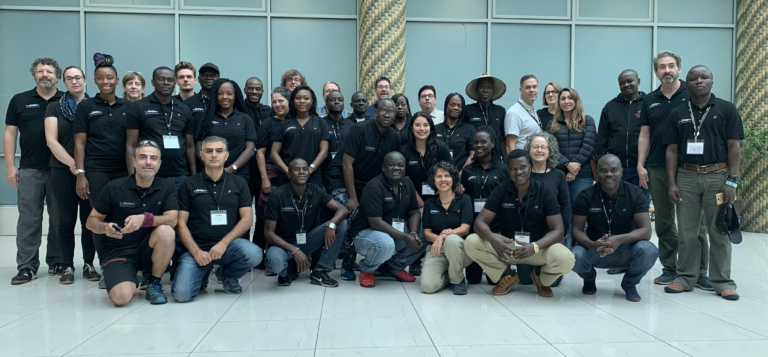
The Waterkeeper Alliance International Summit in Kenya last November brought together 41 front-line workers from the Waterkeeper movement. They traveled from 16 countries on four continents to learn from other Waterkeepers. Many of them work, daily, under the most challenging conditions, dealing with the ravages of war in Iraq and unchecked industrial pollution on Africa’s Lake Victoria.
We spoke with them about what keeps them doing the work. Their answers follow.
Nabil Musa
Waterkeeper, Iraq Upper Tigris Waterkeeper, and head of Waterkeepers Iraq (Iraq)
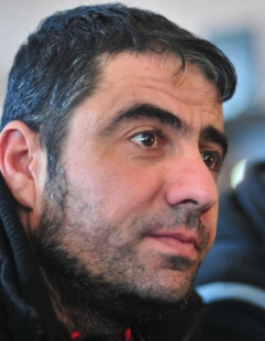
When I think about pollution on the Tigris, I feel like I’m the hummingbird in a forest fire — this little bird bringing drops of water. The elephant and the lion, they say, “You’re stupid.” But I’m doing what I can. And doing it helps me sleep better. Where I live, we are in an awakening process. Because of our Waterkeeper programs in the region, I can see young people taking up the work. University students have been to my workshops, they’ve started their own environmental groups, they were at the swim I organized in the Tigris River. They were inspired by us. Water may not be a renewable resource, but maybe activism is.
Leo Akwany
Waterkeeper, Kenya Lake Victoria Waterkeeper (Kenya)
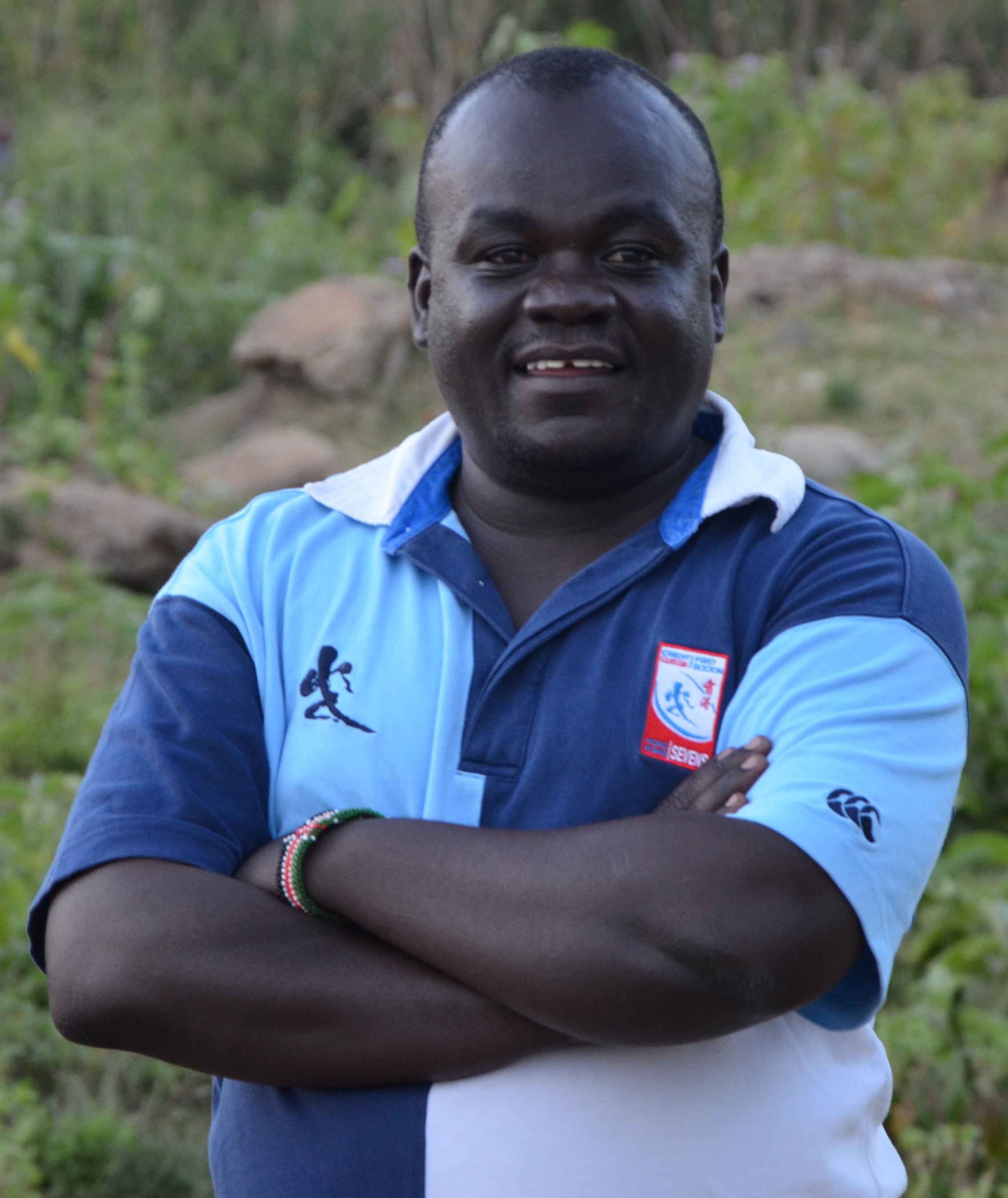 My community depends so much on water, on fish. As a Rotarian, it’s my service to the community. It’s also about my life. Growing up on Lake Victoria, seeing it’s beauty — it’s a place worth fighting for.
My community depends so much on water, on fish. As a Rotarian, it’s my service to the community. It’s also about my life. Growing up on Lake Victoria, seeing it’s beauty — it’s a place worth fighting for.
I’ve always believed in local solutions, not solutions brought from elsewhere. I’ve always believed in grassroots solutions.
My work in creating wetland pedagogical centers where our communities have a space to learn about green technology, how to package the beauty of our environment into tourism products, where people can learn about green infrastructure like composting toilets.
I’ve seen the difference learning about the environment can make. I’ve seen young people who were just there idling about; these young people, they’ve organized themselves through our capacity building. They’ve converted themselves into water defenders, taking water samples, building a database. Some have become naturalists; they earn a living showing people beautiful aspects of the lake.
Abdel Rahman Sultan
Jordanian Projects Manager, EcoPeace Middle East (Jordan)
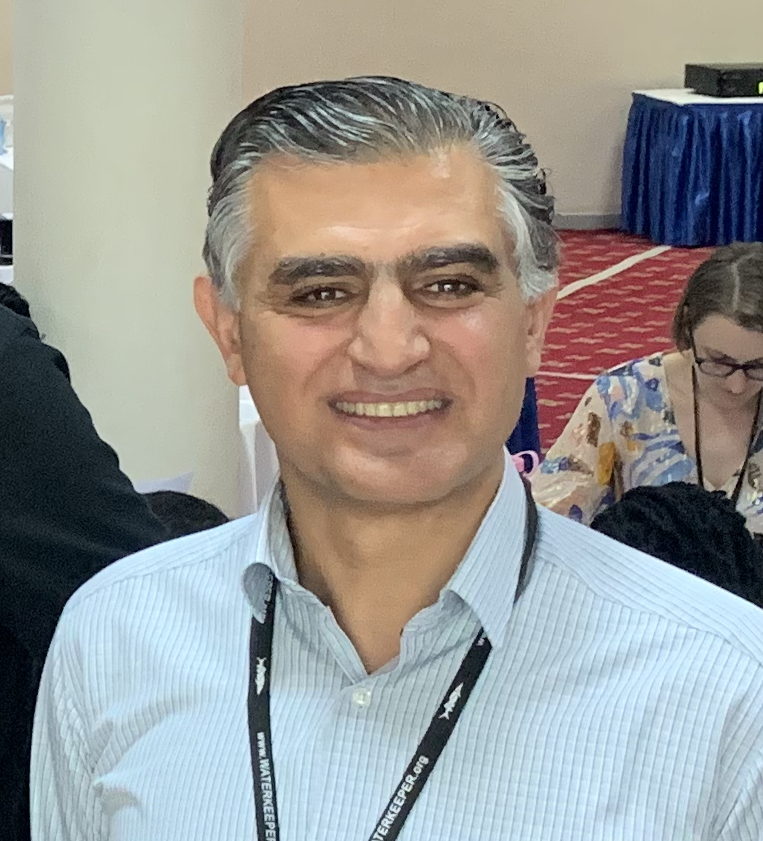 This is an opportunity that should be utilized, the peace opportunity. We have war all around us; maybe people are fighting someone else’s war in our region. Our own war is a war against ignorance, climate change, poverty.
This is an opportunity that should be utilized, the peace opportunity. We have war all around us; maybe people are fighting someone else’s war in our region. Our own war is a war against ignorance, climate change, poverty.
By doing work like building a park that’s used by the people of Jordan, neighboring countries, and international visitors, we’re creating a window of peace, of relaxation. We’re all sick and tired of living on the margins of life with so little water, with pollution, with damaged ecosystems. With the park on the Jordan River tributary, I helped rehabilitate an ecology; I helped bring it back; I helped build something positive for us and for future generations. Being on the constructive side, that means something.
I want to bring happiness to the people. I went to a school to talk about our work. The headmaster wanted to show me, first, that the school had no water. He took me to the water fountain; no water. Toilets were closed — couldn’t flush the toilet. EcoPeace was able to provide the school with water tanks. We need to be flexible. In a region with seemingly intractable problems, we find solutions. Not every day, but some days.
Sounkalo Dembele
Executive Director, Bamako Niger River Guardians, a Waterkeeper Alliance Affiliate (Mali)
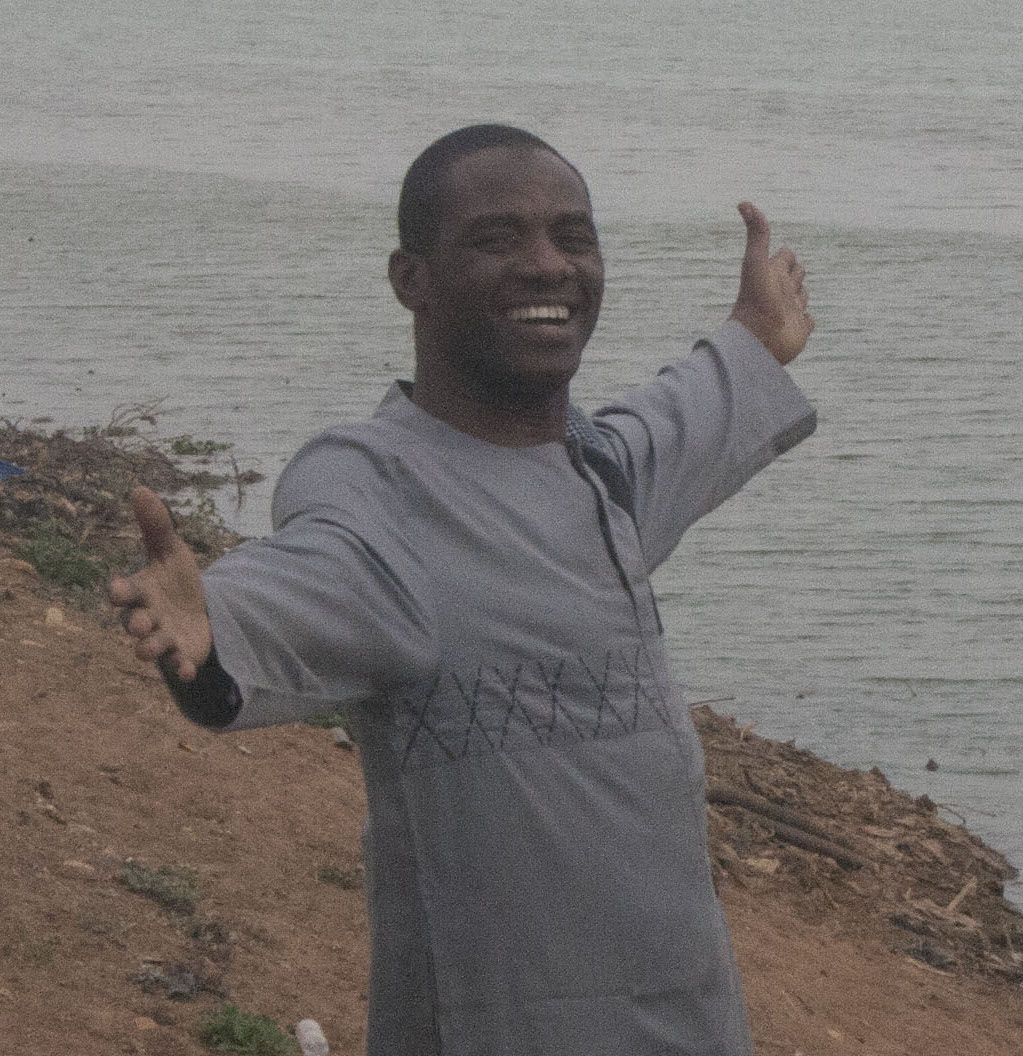 This is about the legacy I want for future generations to see as my personal footprint through the Waterkeeper network — to show that there is a better way by doing it.
This is about the legacy I want for future generations to see as my personal footprint through the Waterkeeper network — to show that there is a better way by doing it.
The majority of people don’t know what’s at stake. As I know it, it is my duty to let them know. It is my duty to do it.
Margarita Diaz
Waterkeeper, Tijuana Waterkeeper (Mexico)
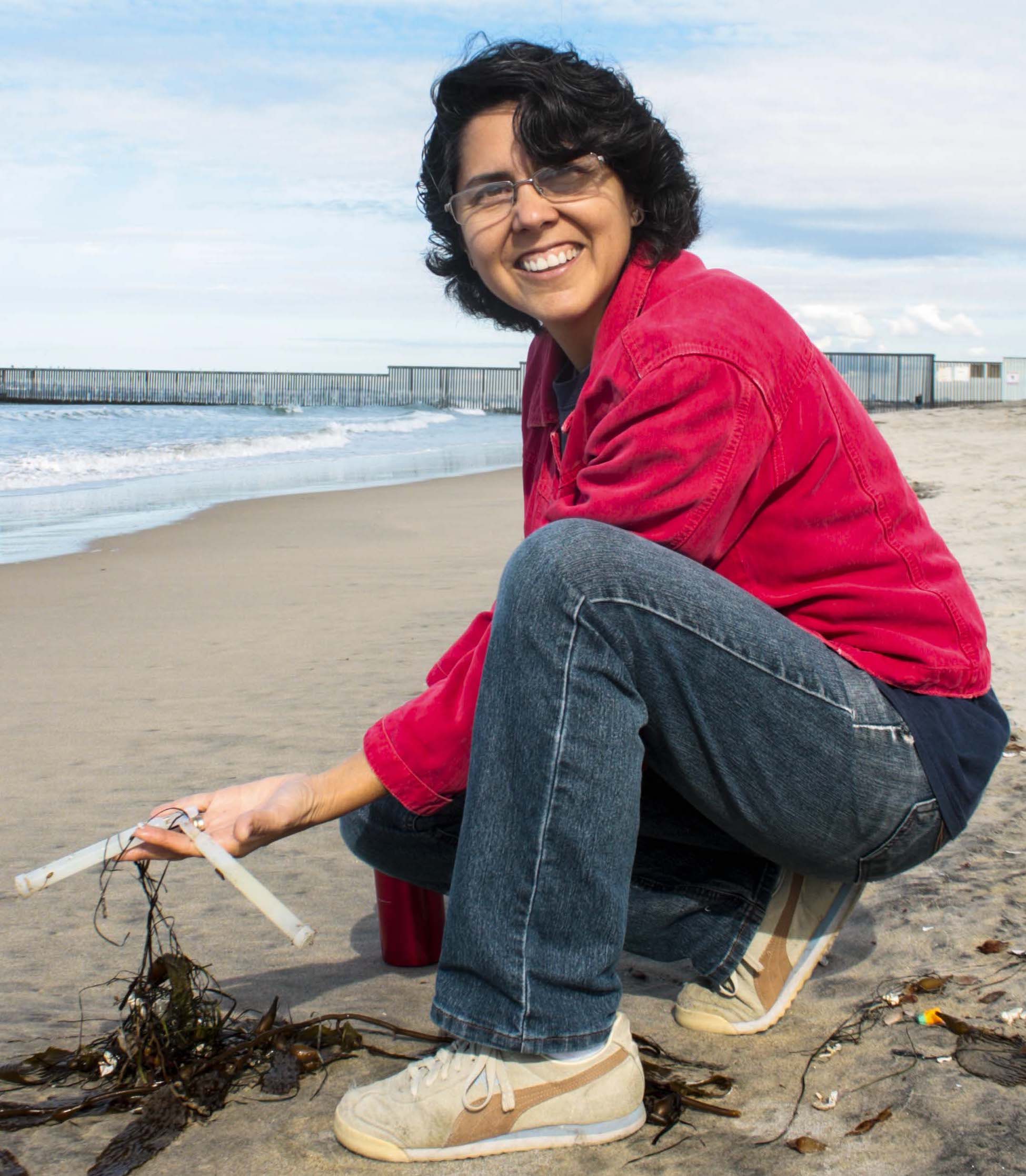 We take children to the ocean. One child waded into the water up to his ankles. He was six years old, born in Tijuana, and had never been to the beach. He said, “I have a question.” Then he pointed at his feet and asked, “The water here, is it the same water as out there?” Then he pointed to the horizon.
We take children to the ocean. One child waded into the water up to his ankles. He was six years old, born in Tijuana, and had never been to the beach. He said, “I have a question.” Then he pointed at his feet and asked, “The water here, is it the same water as out there?” Then he pointed to the horizon.
It’s unfair that some people have access to clean water and clean beaches and most of the people in Tijuana don’t. I can’t live with that level of unfairness. I can’t.
Arreini Palacio Morgan
Waterkeeper, Placencia Lagoon Waterkeeper (Belize)
 The goal that keeps me going is ensuring that our marine ecosystem remains as pristine as possible. It’s not the big fights — although the big fights are very important — what keeps me fueled up are the smile on the face of a child who understands, the ‘good job’ affirmation from a fisherman who used to be opposed to the general idea of our work, the kind words from tour guides who used to have no confidence in our work saying “I see what you are doing, great job! How can I help?”
The goal that keeps me going is ensuring that our marine ecosystem remains as pristine as possible. It’s not the big fights — although the big fights are very important — what keeps me fueled up are the smile on the face of a child who understands, the ‘good job’ affirmation from a fisherman who used to be opposed to the general idea of our work, the kind words from tour guides who used to have no confidence in our work saying “I see what you are doing, great job! How can I help?”
The Placencia Village is connected with a path, almost like a boardwalk. I want our successes and challenges to be known in the nation’s board rooms — and on our boardwalk. The number of developments here has ballooned; there are 14 offshore developments on different cays that have gone up in the last five years, developments that include dredging, removing mangroves and other activities that will have a negative impact on our marine environment. Our Department of the Environment isn’t able to monitor each of them. Our work is cut out for us! When I see these things happen, It hurts me and I am disappointed. I want better for the fisherman’s child, for the tour guide’s child. That’s what keeps me going.
Rashema Ingraham
Waterkeeper, Bimini Coastal Waterkeeper, and head of Waterkeepers Bahamas (The Bahamas)

As a child, I knew I always wanted to be connected to the environment; it was something I was born to do. I was born to look beyond this moment in time to create a better future now for my grandchildren.
Giulia Giordano
International Affairs Manager, EcoPeace Middle East (Israel)
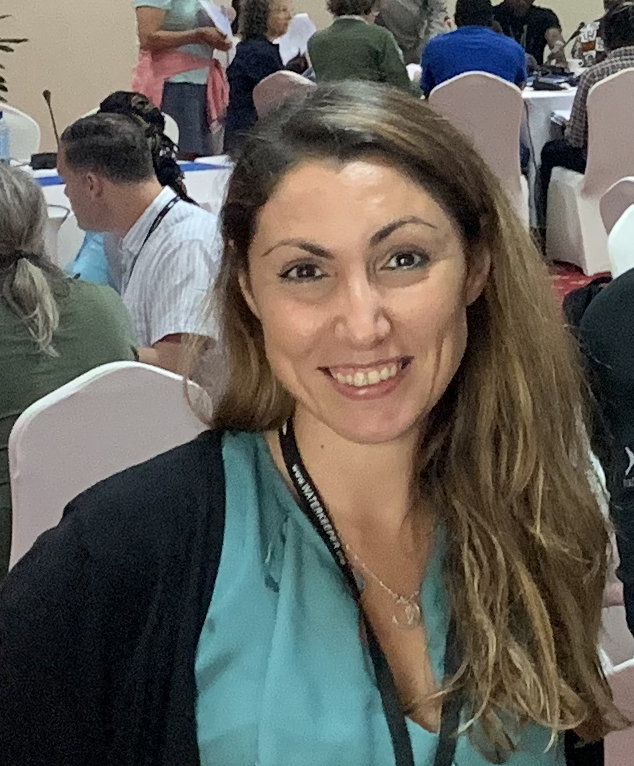 Despite the frustration, the little money, the difficulties, the challenges — the most rewarding aspect of this work is that you’re contributing to real change. That makes me feel good with myself. It’s a very selfish, self-rewarding mechanism. I couldn’t feel good with myself if I didn’t do all I could with my private life and my professional life to make real change. I feel lucky that my professional life gives me the opportunity to contribute to the world. It’s a privilege.
Despite the frustration, the little money, the difficulties, the challenges — the most rewarding aspect of this work is that you’re contributing to real change. That makes me feel good with myself. It’s a very selfish, self-rewarding mechanism. I couldn’t feel good with myself if I didn’t do all I could with my private life and my professional life to make real change. I feel lucky that my professional life gives me the opportunity to contribute to the world. It’s a privilege.
Theo Thomas
Waterkeeper, London Waterkeeper (England)
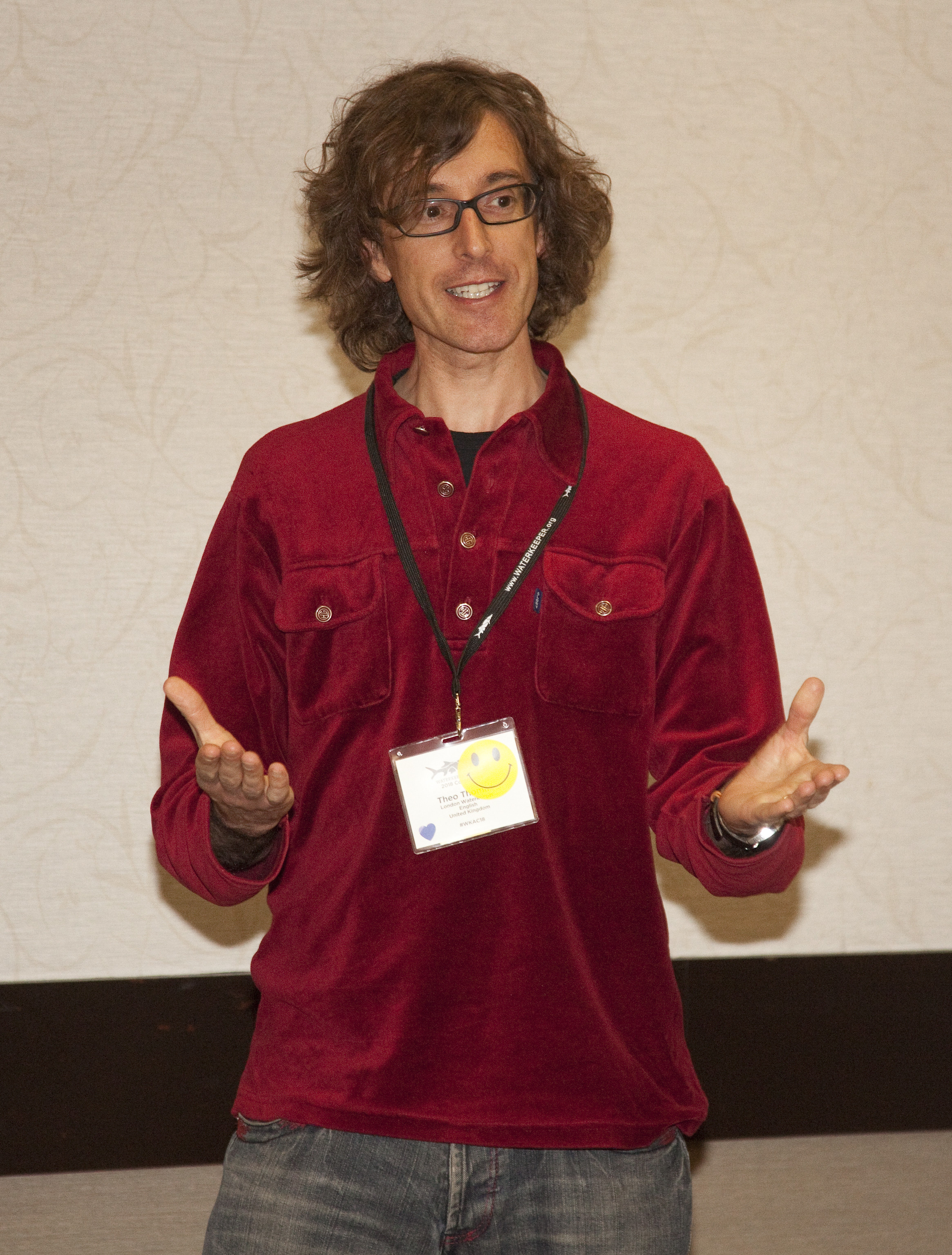 People who see pollution happening on their river know it’s wrong because it’s degrading the environment, but also because it removes that area from their lives, which causes stress. The failure to act on their concerns means the seeds of cynicism and discontent have been planted. They become disillusioned with society itself and its ability to solve problems. We’ve spent decades building up the rule of law and trying to create equitable societies; the risk of unbraiding all that determination from our forebearers; it’s just too great.
People who see pollution happening on their river know it’s wrong because it’s degrading the environment, but also because it removes that area from their lives, which causes stress. The failure to act on their concerns means the seeds of cynicism and discontent have been planted. They become disillusioned with society itself and its ability to solve problems. We’ve spent decades building up the rule of law and trying to create equitable societies; the risk of unbraiding all that determination from our forebearers; it’s just too great.
It’s a cause that brings people together, rather than splitting them up. I enjoy doing this work. It’s good fun. It’s exciting. It feels essential. And not enough people are doing it.
It’s also the deep sense of environmental justice that can be life-changing for people, that no one has the right to deny someone else; through it, we get the chance to show our humanity. We all need to do it, whether it’s opening the door for somebody or standing with people when they want to reclaim their river, if we are to survive as a species. The challenges are deep-set and dangerous; how we choose to get through this is going to define us as a species.
Godfrey Kitimbo
Waterkeeper, Lake Kyoga Waterkeeper (Uganda)
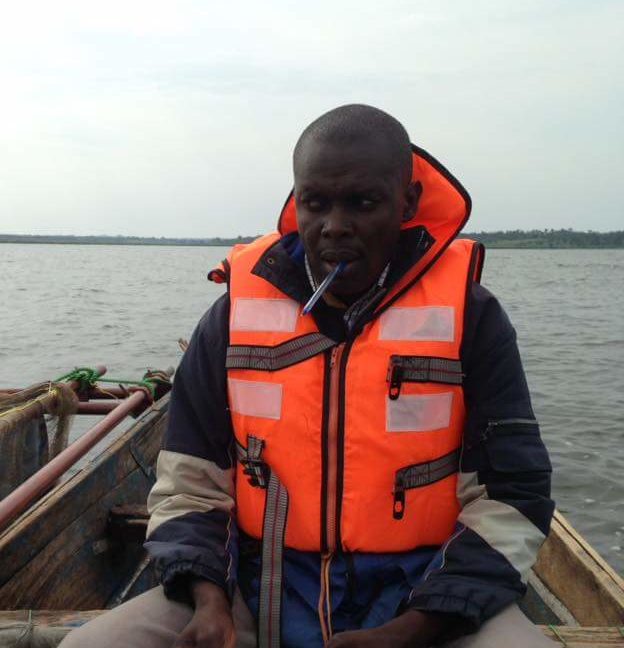 A safe environment is for all of us — it’s not for one individual. I have a passion for humanity; transforming peoples’ lives is what I intend to do. Clean water brings health and wealth.
A safe environment is for all of us — it’s not for one individual. I have a passion for humanity; transforming peoples’ lives is what I intend to do. Clean water brings health and wealth.
Adenike Adeiga
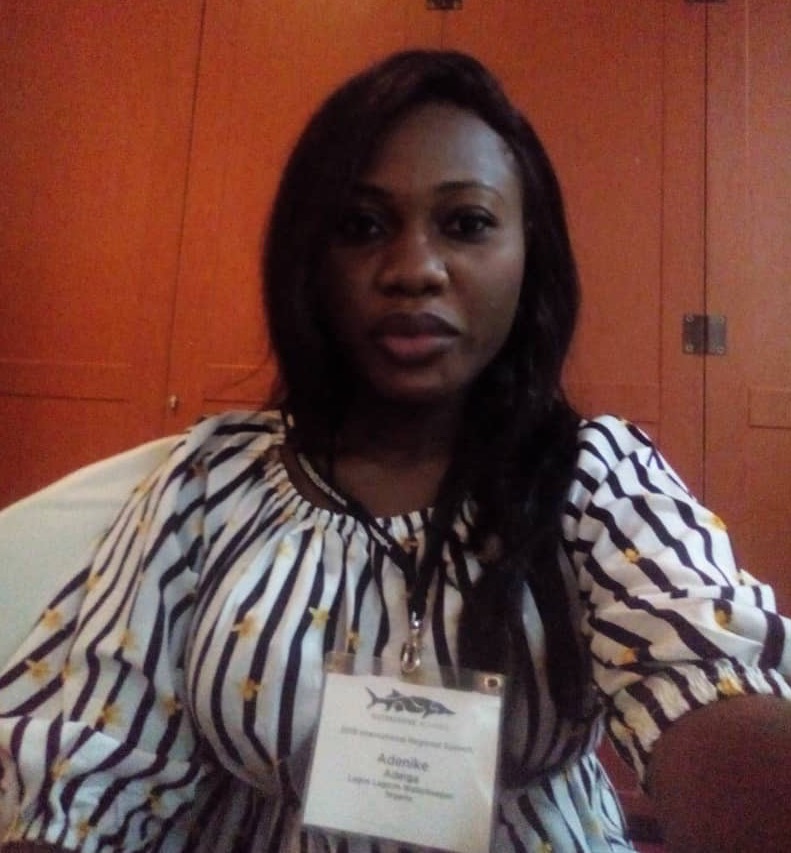
Country Director, Lagos Lagoon Waterkeeper (Nigeria)
I derive joy and feel a special connection working to protect nature, maybe because I was born on World Earth Day. And water is it. Nobody deserves to suffer from lack of access to clean water even for the lives below water. It is a long fight, I have started and I intend to go as far as I can.
A key factor we need to address, especially from the region where I come from, is human behavior; not sustainably managing natural resources. Nature belongs to all of us and is intergenerational when you misuse it, you compromise the needs of others and that of future generations.